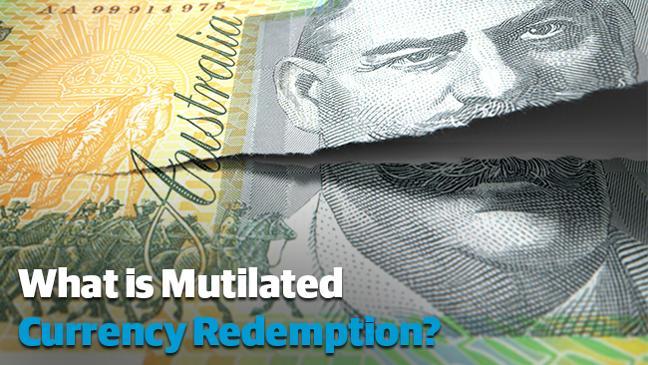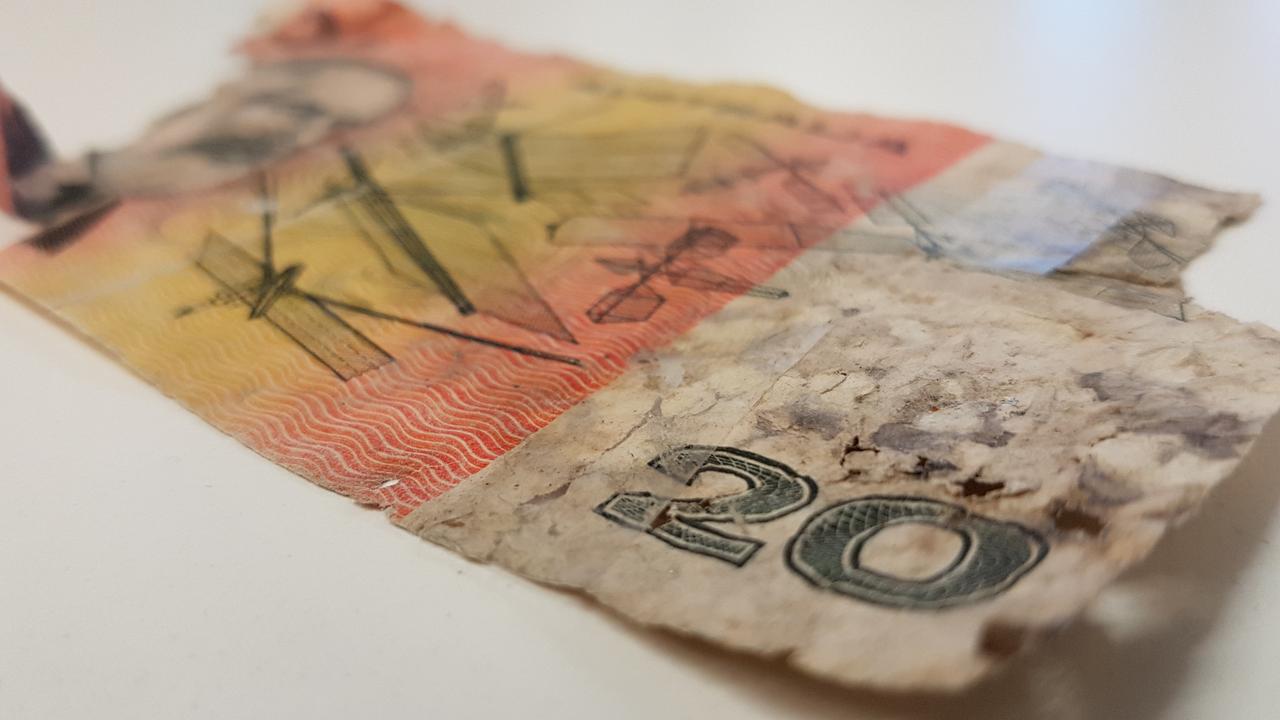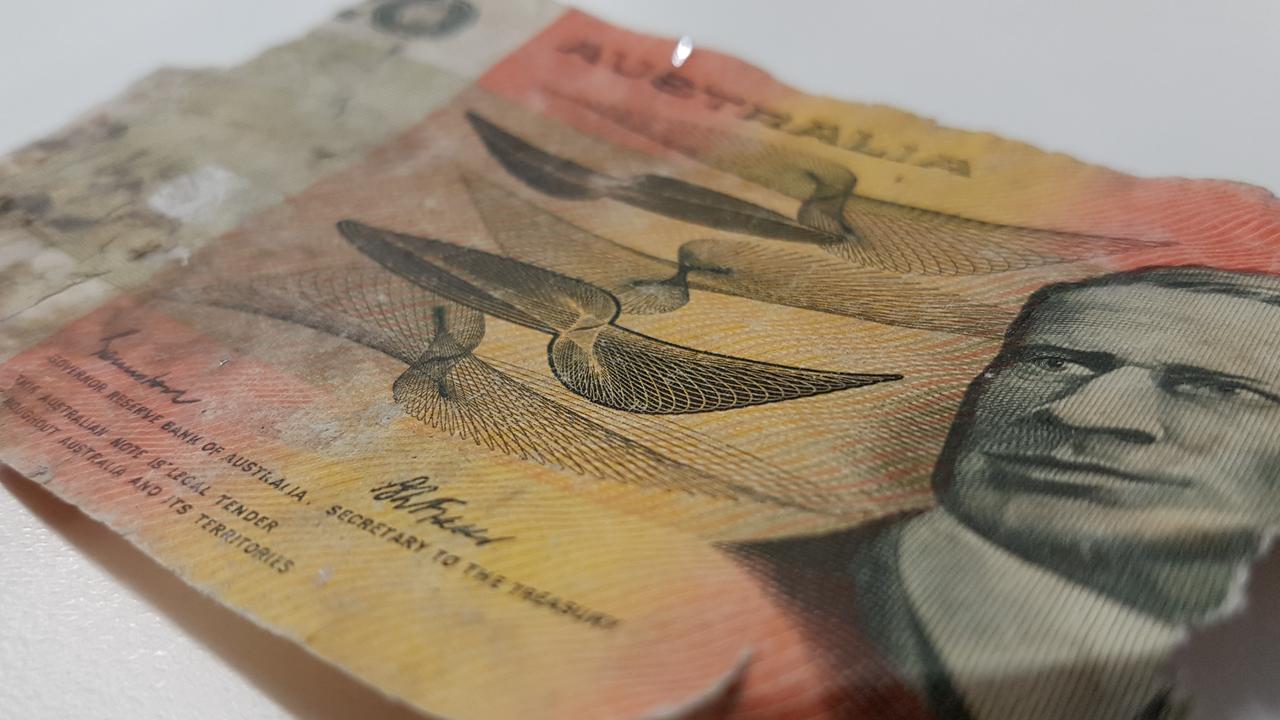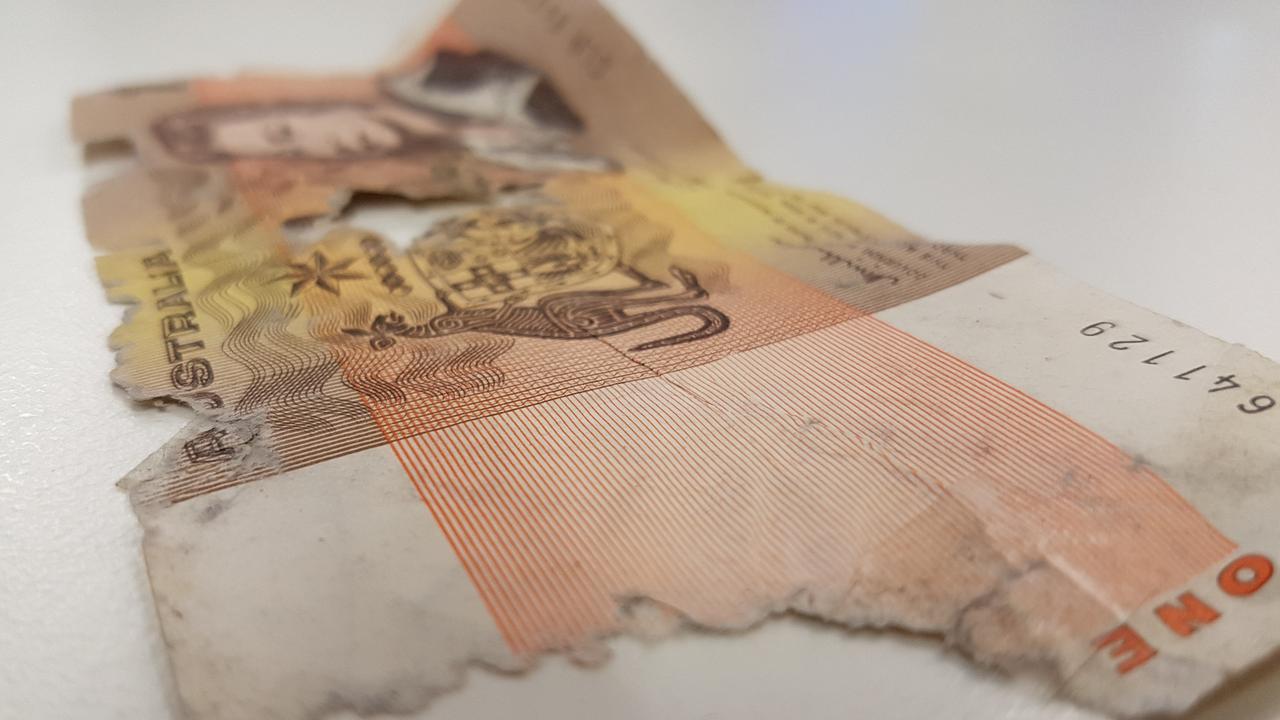Damaged currency dealer takes UK police to court as global war on cash gets dirty
IT’S ripped and torn, covered in dirt and mould after sitting in a damp plastic bag for decades. But can you still use this note?

THE war on cash is heading to court.
If a $10 note is ripped or torn, or a $2 coin is mangled in a metal recycling plant, is its “value” permanently lost? Should the currency issuer honour it, or does the damaged cash simply get written off like a bad debt?
Deep down, was it ever really worth anything to begin with?
For Ronnie Shahar, these are not just philosophical questions. They are central to his livelihood — and he says there is a “global trend” of central banks walking away from their obligations to honour legal tender.
For nearly three decades, the 48-year-old Australian-Israeli entrepreneur has made millions travelling the world, buying up damaged coins and notes from recycling plants and currency exchanges, then returning them to their country of origin.
It’s an extremely lucrative business for the father-of-three, generating annual profit of more than $5 million. But moving around large amounts of cash — often of uncertain origin — naturally attracts the attention of authorities.
Last year, police in the UK seized three batches of damaged banknotes worth more than £120,000 from Mr Shahar under the Police and Criminal Evidence Act.
He was given shifting reasons for the investigation into the banknotes, purchased from a Dubai-based currency exchange, including inaccurate customs declarations and potential VAT liability.
After more than a year, the investigation was closed without explanation and the notes were returned to the Bank of England. While Mr Shahar was ultimately paid, he’s now suing the City of London Police for unlawfully seizing his property.
The lawsuit, filed last week in the High Court of Justice Queen’s Bench Division, alleges the investigators failed to “identify, let alone particularise, any tangible act of criminality” and accuses police of seeking to “justify the initial seizure and provide the Bank of England with an excuse not to redeem my notes”.
“Very dark days when a government attempts to use the police as a tool in their own dishonesty,” Mr Shahar said in an email. “If a government does not want to honour its obligations they should make this public knowledge.”




In his sworn witness statement, Mr Shahar said he had “been trading in this way using the same declaration forms and sources of notes and coins for over 20 years” and had “never been involved in any criminal enterprise”.
“It is very important to me and my business that I obtain a determination by the court in relation to the conduct of the police,” the statement said.
“The reason for this is that I am extremely worried that the police will interfere with my property in a similar way, on baseless grounds, in the near future.
“A declaration from the court would clarify my legal rights and the obligations of the police in these circumstances. This in turn, I am sure, would discourage the police from acting so recklessly in the future.”
In the statement, Mr Shahar claims he was harassed by UK authorities during a stopover at Heathrow Airport in April this year.
“As I disembarked, officers from the UK Border Force were waiting for me at the gate,” he said.
“I was then taken into an interview room where four officials were present. One of these officers identified himself as an officer of HMRC (Her Majesty’s Revenue and Customs). The first question I was asked was whether or not I was carrying any money or cash.
“I replied that I was carrying a quantity of sterling, Irish punts and other currencies. I also produced the German customs declaration to confirm my declaration of the cash on entering the EU. I was not arrested or cautioned.”
Mr Shahar says when he asked why he was being stopped, he was simply told “they had the right to stop and question me”. After being let go, he claims he was approached in the duty free shop by one of the Border Force officers who had been present in the interview.
“They’ve got it in for you,” Mr Shahar alleges the officer said to him. “I asked, ‘What do they want from me?’ and he just said that he did not know.”
He also describes how, shortly after his barrister wrote to the police in February this year, the investigating officer attended the man’s home address “at 8.45am to confirm that he was acting for me”.
“This was not the professional address that had appeared on his letterhead,” he said.
“Moreover, the police had made no attempt either to call or email (his) office to verify that he was representing me before making the extraordinary decision to attend his home address where I am aware he resides with his family. This was wholly unnecessary and an apparent act of intimidation.”
If the UK court rules the seizure of his money was unlawful, he intends to seek compensation and misfeasance claims against both the police and the Bank of England.
In a statement, a spokeswoman for City of London Police said: “We can confirm that there is an ongoing civil claim in relation to this case and as a result we will not be commenting any further.”
Mr Shahar says central banks around the world, including in Australia, Canada, the US, Switzerland and Sweden, were “all attempting to avoid their obligations to redeem withdrawn or damaged currency”.
In Australia, he is locked in an impasse with the Reserve Bank, which in 2014 updated its Damaged Banknotes Policy without warning to effectively freeze out the commercial redemption of damaged currency.
The previous policy “said very little about the rationale for the Bank’s Damaged Banknotes Facility, beyond aiming to have only good quality banknotes in circulation”, an RBA spokesman said in an earlier statement.
“The revised policy makes clear that the Damaged Banknotes Facility is only offered to members of the public who have unwittingly come into possession of damaged banknotes or those whose banknotes are accidentally damaged, with the aim of ensuring that they do not face financial hardship.”
Mr Shahar currently has around half a million dollars worth of damaged notes sitting at a printing facility in Craigieburn, Victoria, that the RBA agreed to hand back after rejecting his claim in 2015.
But Mr Shahar has refused to sign the release form. “It’s like blackmail,” he said last year. “They’re holding my money unless I agree to all their terms and waive my rights to legal remedies.”
In January, the RBA confirmed it had more than half a million dollars worth of damaged currency in limbo as a result of the updated policy.
There were 1001 individual claims received after January 23, 2014 still “awaiting determination” as of December 17, 2017, with a total value of $545,523.
Those included claims that had been entered but not assessed, claims that had assessed but not verified, claims pending transaction monitoring, and claims pending a response to queries or requests for further information or in a “blocked” state.
The total does not include rejected claims, including Mr Shahar’s disputed notes.
Following his UK litigation, Mr Shahar says he intends to take legal action against the RBA before the end of the year.
“The RBA still claims unless I sign a waiver on my rights my notes will not be returned and in fact will all be destroyed,” he said. “This in itself is not legal.”




